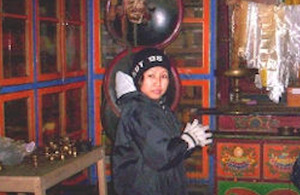DFID Research: Reporting on research
Journalists have been trained to write features on research for a wider audience

Thingnam Anjulika Samom is an independent journalist in Manipur, Northeast India
“At one time, journalism for me only meant giving details of accidents and political killings, attending functions and writing about it. The use of academic research as the basis of my journalistic writings has helped to make my articles more mature and complete. It also helps me address issues in a more informed and significant way that mere event reporting can ever do.” - Thingnam Anjulika Samom, Journalist, India
Thingnam Anjulika Samom is an independent journalist in Manipur, Northeast India who received a fellowship from the DFID-funded Relay Programme in India to write stories using research.
Through this fellowship, Anjulika was able to hone her skills as a journalist. Her new proficiency means she now receives commissions from Panos London to write features that are distributed to a worldwide audience. Her most recent article, an opinion piece titled “India: Pen-power, research and me,” is part of the latest Relay media resource pack which also includes a guide for journalists ‘Reporting research: using evidence for effective journalism.’
Anjulika is one of 35 journalists supported by Panos London over the past 3 years to produce global features on development research. These features are distributed to hundreds of media outlets around the world along with resource materials summarising key debates, providing tips and advice and listing local and global research organisations to contact. The features and photos are free to publish and the media briefs contain accessible information on recent development research and tips on reporting.
Relay has found that journalists are often hesitant to use research in their work. Research can be complex and difficult to understand, and researchers can be hard to contact. Through its media briefs, workshops, dozens of national fellowships and publications like Getting Into the Kitchen: Media Strategies for Research, Relay helps both journalists and researchers to work with each other. Despite the difficulties in access to research, such as slow internet connections and the high cost of research journals, Relay’s work has helped Anjulika and other journalists to use research analytically in their work.
For instance, after participating in Relay’s workshops, Bhekizwe Marvin Gwebu, a journalist from Swaziland, found the value of research in his writing. “I began to appreciate that for any meaningful development, policies should be based on research material,” he said. “It made me believe that if I vigorously report on issues informed by research I could really alert people to what needs to be done for the betterment of everyone.”
As well as helping journalists like Anjulika and Bhekizwe write more analytically and make better use of research, Relay also encourages journalists to include the voices of those directly affected by the research in their articles by providing travel grants to interview these groups. In this way, journalists are able to connect research with the needs of people on the ground, and they can ensure that all voices are included in the media debate.
“Instead of reporting ‘so and so has done this research,’” writes Anjulika, “I have learned to put a human face to the research or issue at hand, helping me to reach a wider audience.”